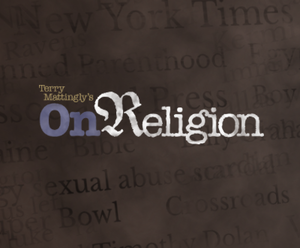The questions that haunted the Pontifical Academy for Life conference were familiar, controversial and exhausting, since Catholics and their bishops had been arguing about them for years.
The year was 2006, but little has changed in 2021.
What should bishops do when prominent Catholics — even presidential candidates — defended and promoted abortion rights? What if they said they accepted churched teachings on the sanctity of human life, while their actions suggested otherwise?
Would it violate the “separation of church and state” if bishops denied them access to Holy Communion? What if bishops asked these politicos to go to Confession?
“This is silly,” said scholar Robert P. George, addressing that Vatican gathering. A Catholic shepherd “acting on his authority as a bishop to discipline members of his flock, who commit what the Church teaches are grave injustices against innocent human beings” would be “exercising his own constitutional right to the free exercise of religion. …
“Freedom is a two-way street. No one is compelled by law to accept ecclesiastical authority,” stressed George, an outspoken Catholic layman and professor of jurisprudence at Princeton University. Thus, a bishop has “every right to exercise spiritual authority over anyone who chooses to accept it. There is a name for people who do accept the authority of Catholic bishops. They are called ‘Catholics.’ “
At that time, most debates centered on Sen. John Kerry, the Democratic Party’s presidential nominee in 2004.
Cracks inside the U.S. Conference of Catholic Bishops widened with the election of President Joe Biden, a rosary-carrying Catholic who — in word and deed — has evolved into a fierce defender of abortion and LGBTQ rights. Biden quickly dropped his longstanding opposition to the federal funding of abortion, after criticism from the left in the 2019 primaries.
Despite fierce opposition from several U.S. cardinals, 75% of the U.S. bishops recently voted to proceed with a document on “Eucharistic coherence” in an age in which many Catholics reject key church teachings — including the core belief that bread and wine used in Communion become the body and blood of Jesus.
Doctrinal conservatives have continued to ask what it would take for bishops to enforce Canon 915 in church law, which states that Catholics “obstinately persevering in manifest grave sin” should be denied Holy Communion.
Facing withering media criticism, the bishops released a statement saying they made “no decision about barring anyone from receiving Holy Communion. Each Catholic — regardless of whether they hold public office or not — is called to continual conversion, and the U.S. bishops have repeatedly emphasized the obligation of all Catholics to support human life and dignity and other fundamental principles of Catholic moral and social teaching.” There will be, they stressed, “no national policy on withholding Communion from politicians.”
Asked if he was concerned, Biden told reporters: “That’s a private matter and I don’t think that’s going to happen.”
This reference to “private” support for church teachings, as opposed to public actions, is another sign that little has changed in these debates over several decades.
On Twitter, George recently noted: “If we take him at his word: (1) Joe Biden believes that unborn children are human beings who bear inherent and equal dignity and a right to life. (2) Joe Biden believes that this particular class of persons should be denied protection against homicide afforded by law to all others.”
During his 2006 address at the Vatican, George noted that public servants attempting to combine those two beliefs violate the “most basic precept of normative social and political theory, the Golden Rule. … By exposing members of the disfavored class to lethal violence, one deeply implicates oneself in the injustice of killing them.”
This raises a question, he said, that some bishops want to avoid: “What should they do about those who claim to be in full communion with the Church yet promote gravely unjust and scandalous policies that expose the unborn to the violence and injustice of abortion?”
While many bishops want clarity on that issue, “it’s clear that some bishops believe it would be counter-productive to take that step,” said George, reached by telephone. “It wouldn’t be prudent, in other words. … They fear many Catholics will rebel and make it look like the bishops are tools of the Republican Party. … They fear a backlash against Catholicism.”













